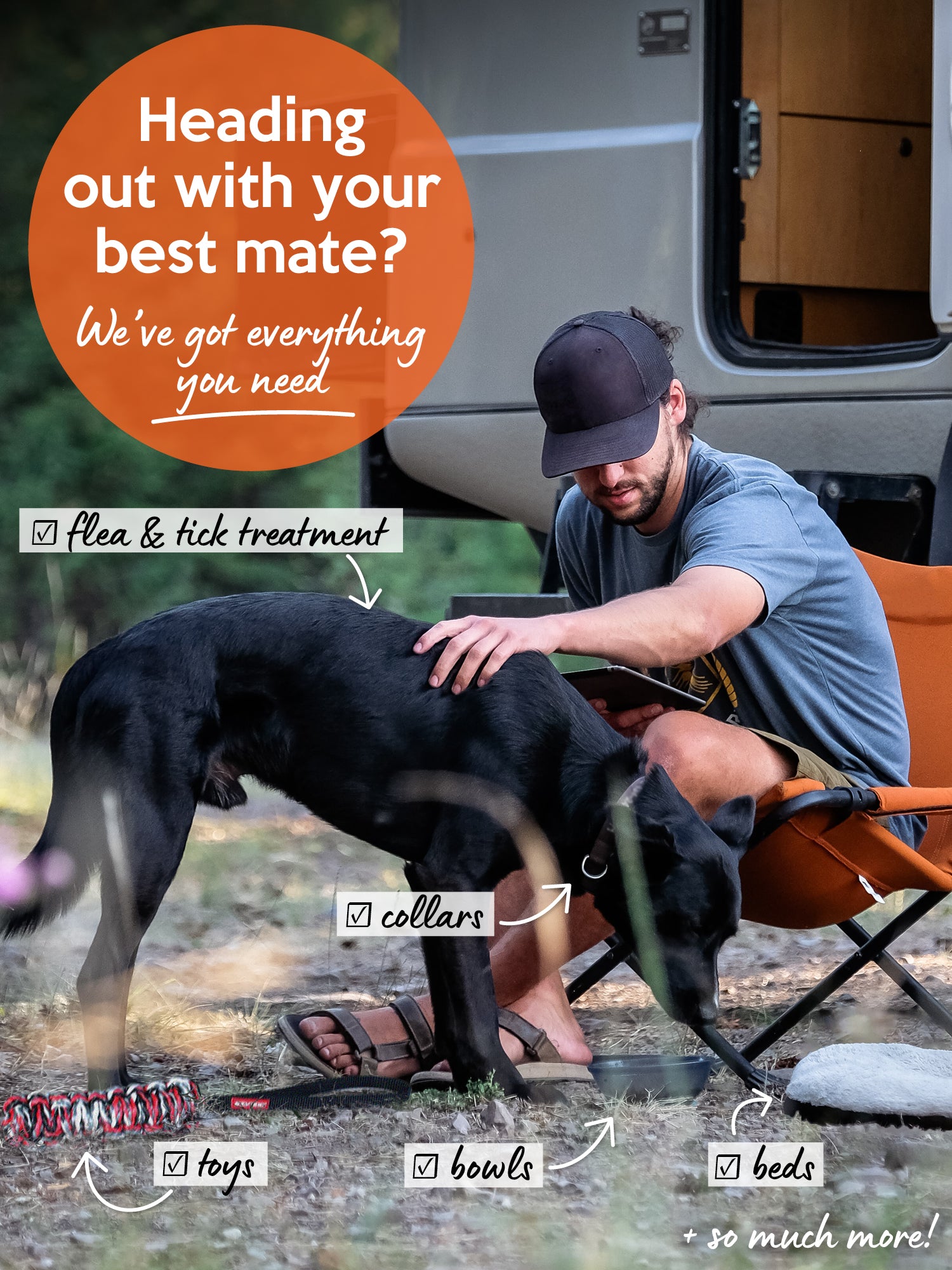If a dog or cat is to lick, bite or eat a cane toad the poison can make them sick. Dr Glenn gives you the run down of what to do in this situation.


Are you planning a camping trip? Why not take your dog? Camping is great way to relax while enjoying the outdoors and being able to share the experience with your dog can make it even more enjoyable. We have put together some of our favourite products and a few tips to help you prepare for a camping trip with your dog and to keep them safe while camping.
Are you planning a camping trip? Why not take your dog? Camping is great way to relax while enjoying the outdoors and being able to share the experience with your dog can make it even more enjoyable. We have put together some of our favourite products and a few tips to help you prepare for a camping trip with your dog and to keep them safe while camping.
If a dog or cat is to lick, bite or eat a cane toad the poison can make them sick. Dr Glenn gives you the run down of what to do in this situation.
Sounds simple but ticks are often overlooked. Dr Glenn takes us though the proess they use in the vet clinic that you can also do yourself.
Canine Ehrlichiosis is a potentially fatal disease spread by the Brown Dog Tick. Dr Glenn explains what it is and how to protect against it.


